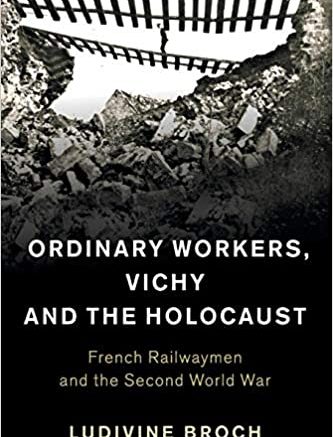One of the most striking anecdotes in this book appears at the very end. This was the story of Leon Bronchart, a French railway worker who stood up to the Nazi German occupiers and their Vichy collaborators. Bronchart , refused to drive a train full of political prisoners (or Jews – there are different versions of the story). He became a hero of the resistance. And here’s the really striking part: he is only French railway worker to have been honoured as one of the Righteous Among the Nations by the Holocaust centre in Jerusalem, Yad Vashem. In the entire glorious four-year struggle by heroic railwaymen against the fascist enemy, only Bronchart seems to have actually tried to save Jews from deportation to the death camps. And even that fact is contested; he may well have been trying to save what he believed were political prisoners. And of course the train went ahead on its journey with a different driver — no one was actually saved.
The story of the French railway workers is an enormously complex one and it is told very well by Ludivine Broch. She begins her story in the 19th century, because one needs to understand how the community of French railway workers came into being. Their values were perhaps unique in the French working class — for example, they could not imagine sabotaging their beloved locomotives, though during the war this view had to be modified.
The post-war myth — propagated by French films and their Hollywood re-makes — depicted not only the railway workers as heroes, but the state-owned SNCF railway company was also honoured for its role during the years of Vichy and the Occupation. All that came to be challenged in recent decades as the full complicity of the company in deportations of French Jews to death camps became clear.
I would have liked to see a bit more about the relationship between those French railway workers who did resist, and who did eventually engage in sabotage, with both the Allies (especially the British SOE) and the international trade union movement, especially the International Transport Workers Federation (ITF) which was working hard to provoke acts of anti-German resistance among transport workers in occupied Europe.
An excellent and well-researched book deserving of a wider audience.
